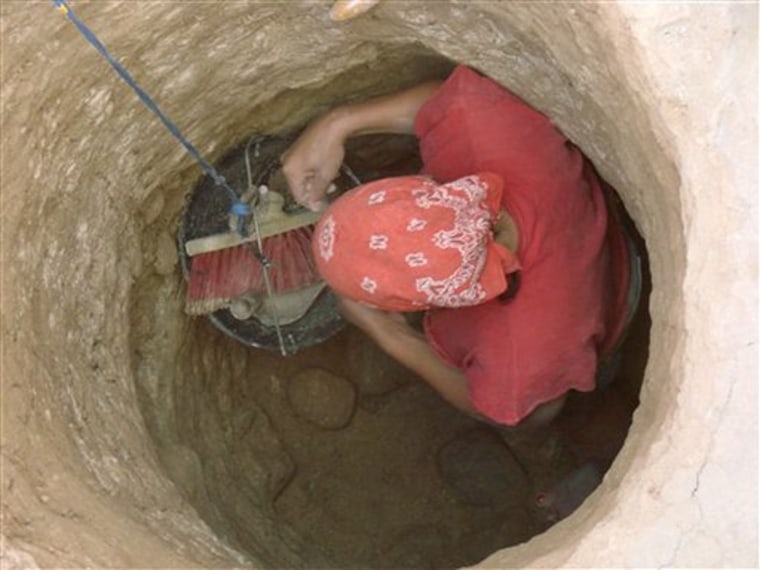Archaeologists have discovered a water well in Cyprus that was built as long as 10,500 years ago, and the skeleton of a young woman at the bottom of it, an official said Wednesday.
Pavlos Flourentzos, the nation's top antiquities official, said the 16-foot deep cylindrical shaft was found last month at a construction site in Kissonerga, a village near the Mediterranean island nation's southwestern coast.
After the well dried up it apparently was used to dispose trash, and the items found in it included the poorly preserved skeleton of the young woman, animal bone fragments, worked flints, stone beads and pendants from the island's early Neolithic period, Flourentzos said.
The skeleton could be as old as the well itself, but archaeologists don't know how the girl died or when and why the skeleton was left there, he said. Radiocarbon dating found the well is between 9,000 to 10,500 years old, he said.
That was around the time migrating humans started to build permanent settlements on the island. Before then, temporary settlements were inhabited by sea-borne migrants using Cyprus as a way station to other destinations.
Thomas Davis, director of the Nicosia-based Cyprus American Archaeological Research Institute, said the well — which he called "among the earliest in the world" — offers proof of the "high level of sophistication" of the island's early Neolithic farmers.
"The fact that they were using wells and that they tapped into the island's water table shows heightened appreciation for the environment here," said Davis, who was not involved in the discovery. "This was a major investment."
Cypriot archaeologists studied the well in collaboration with Edinburgh University. The university has excavated in the area over the last three decades, unearthing several settlements dating from the Chalcolithic Period (3800-2500 B.C.).
